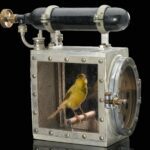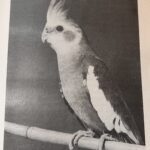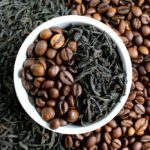
Hygiene hypothesis and birds
This is a food for thought post. What’s now called the Hygiene Hypothesis was first proposed in 1872 and was studied in depth in a well known study from 1989:
“Over the past century declining family size, improvements in household amenities, and higher standards of personal cleanliness have reduced the opportunity for cross infection in young families,” the paper continued. “This may have resulted in more widespread clinical expression of atopic disease, emerging in wealthier people, as seems to have occurred for hay fever.”
Hay Fever, Hygiene, and Household Size—British Medical Journal—1989—David P Strachan
Although the theory fell out of favor for awhile, it’s returning and is well described in a new book which is excerpted in the New York Times this month.
What does the immune system do when it’s not properly trained?
It can overreact. It becomes aggrieved by things like dust mites or pollen. It develops what we called allergies, chronic immune system attacks — inflammation — in a way that is counterproductive, irritating, even dangerous.
Your Environment Is Cleaner. Your Immune System Has Never Been So Unprepared—New York Times
In humans and other animals, being exposed to the gut bacteria of other creatures can strengthen the immune system. Could the same thing be true for birds? This has never been studied. But hygiene hypothesis proponents advocate kids playing in dirt so maybe a dirt floor aviary will expose a bird to interesting things. There is always a risk of disease but if a cement floor leads to a weaker immune system, you are making a tradeoff.
I call this food for thought because, in my opinion, we oversanitize our birds possibly even more than our family members. Do we bleach our food dishes and glasses and also the walls and floors of our houses? Could oversanitizing be leading to disease, especially autoimmune diseases, that leave our birds with less defenses.? Could it have something to do with the shorter lifespan of captive birds?
Something worth keeping in mind.




